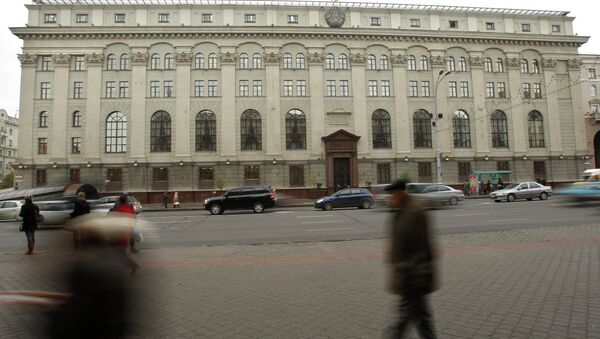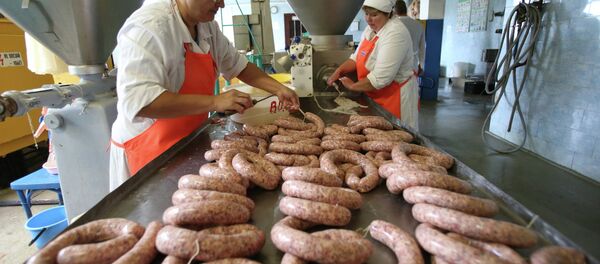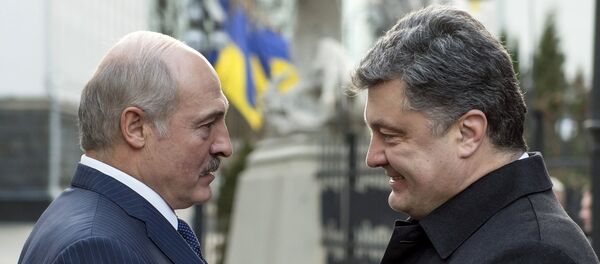In mid-December Belarus was hit by a wave of financial turmoil caused by the recent slump in the Russian ruble’s FX rate. That week, the Belarusian national currency, the Belarusian ruble, sharply depreciated, prompting a run on banks and stores on December 21 as people tried to save their money by buying hard currencies, electronic appliances, computers and mobile devices. Earlier, on December 19, Belarusian authorities blocked Internet access to online stores and several media outlets, allegedly ‘spreading panic’ among the population. Minsk also imposed a ‘temporary’ 30% ‘tax’ on currency exchange operations in an attempt to stave off further depreciation of the Belarusian ruble. All Belarusian exporters were insistently advised to convert half of their currency earnings into the national currency in an attempt to support the Belarusian ruble.
Belarus has long had a hard time attracting money into its economy. Lukashenko, along with several high-ranking governmental officials, has been subject of US and EU sanctions for several years for alleged violations of human rights. Hence, food exports into Russia have been one of the most important sources of hard currencies for Minsk, accounting for $5.7 bln in 2013 and increasing significantly in 2014 due to Russia’s trade embargo imposed on EU foods.
Belarus gained some notoriety in recent months by re-exporting exotic foodstuffs like seafood into Russia. Lukashenko has therefore been trying to extract large economic benefits from the standoff between Russia and the EU in the Ukrainian international crisis.
However, this tactic does not seem to work anymore. In late November, Russia partially restricted Belarusian food imports. The situation is deteriorating for Minsk as next year it has to pay $4 bln to international creditors, while the total amount of the republic’s FX reserves accounts for some $5.8 bln.
The economic struggle of Belarus is rooted deeply in the economic system of the nation. Capitalizing on nostalgia for Soviet rule, Lukashenko has long limited the development of the free market economy. Excessive and often incompetent governmental regulation of the nation’s economy has cause a sheer lack of macroeconomic stability, rife inflation, high borrowing costs and constant depreciation of the national currency, especially severe since Belarus was hit by a financial crisis in 2011.
“Yearly inflation fluctuates between 15-20%, total volumes of the unsold production is ever increasing, having now exceeded 34 trln (Belarusian) rubles, or 79% of the monthly average production,” Stanislaw Bogdankiewicz, a Belarusian academic and a ex-chairman of the National Bank of Belarus (NBB), said as quoted by Charter97. “In manufacturing, 26.7% factories are unprofitable, and, including the low-profitable ones, it is more than a half of the industry. Investment has fallen by more than 10%. Total external debt has risen by more than 140%, amounting at $40.5 bln on October 1, 2014, which is 55.4% GDP.”
The new administrative measures, introduced by Minsk in an attempt to prevent a full-scale crisis, will hardly improve the low efficiency of the economy. The restrictive measures will not strengthen public trust in the national currency.
Meanwhile, Lukashenko tends to blame Russia for the economic struggle of his country. "For us it's important not to jump after Russia into the abyss," he said as quoted by Business Insider.
Belarus is also seeking new markets for its production as its exports into Russia have recently been either unprofitable or banned. Lukashenko was in Kiev on December 21, hoping to improve relations with its southern neighbor.
Meanwhile, most observers agree that Belarus has only two options. A full-scale structural reform, increasing its competitiveness and efficiency, may help the economy, but it would be extremely difficult for Lukashenko to stay in power. Minsk will most likely opt to rely on the anticipated rebound in Russia’s economy, allowing the current Belarusian economic model to stay afloat for awhile.





